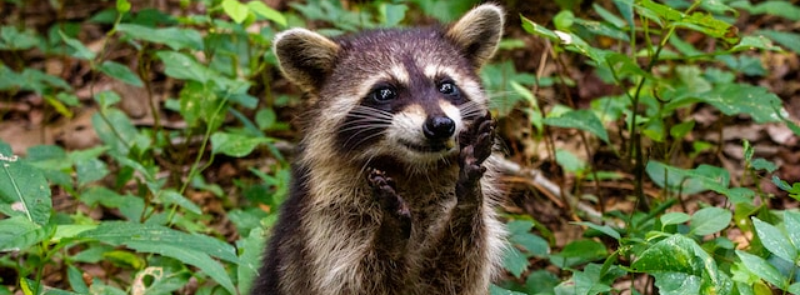
When It Occurs
Every October 1st
Timeline
Days Passed (875)
# Hashtags
#InternationalRaccoonAppreciationDay #RaccoonConservation
Annually celebrated on October 1st, International Raccoon Appreciation Day encourages individuals to explore more about raccoons and express gratitude for their presence. The day also promotes the protection of the raccoon's natural habitat.
Identified by its bushy ringed tail, the raccoon is a nocturnal mammal recognized for the distinctive black mask-like markings around its eyes. Indigenous to North America, raccoons can be found in various regions of the U.S., Canada, Mexico, and the northern part of South America. Additionally, raccoons inhabit areas in Germany, Russia, and Japan.
History and Background
- Initiation: The International Raccoon Appreciation Day has gained popularity among wildlife enthusiasts, conservationists, and animal lovers.
- Growth: Over the years, the day has grown in recognition, with various organizations and individuals participating in activities to celebrate raccoons.
Objectives and Significance
- Raise Awareness: To inform the public about the ecological roles of raccoons and their behavior.
- Promote Coexistence: To foster a better understanding of how humans and raccoons can coexist peacefully.
- Conservation Efforts: To support conservation efforts aimed at protecting raccoon habitats and ensuring their well-being.
- Education: To dispel myths and misconceptions about raccoons and highlight their adaptability and intelligence.
Themes and Focus Areas
- Ecological Importance: Highlighting the role of raccoons in the ecosystem, such as their contribution to pest control and seed dispersion.
- Human-Wildlife Interaction: Promoting ways to coexist with raccoons, including safe practices for preventing conflicts.
- Conservation and Protection: Encouraging efforts to preserve raccoon habitats and support wildlife conservation initiatives.
- Understanding Behavior: Educating people about raccoon behavior, intelligence, and adaptability.
Activities and Celebrations
- Educational Programs: Organizing talks, workshops, and school programs to teach about raccoons’ ecological roles and behaviors.
- Wildlife Tours: Offering guided tours in nature reserves or wildlife parks to observe raccoons in their natural habitats.
- Community Events: Hosting community events such as wildlife fairs, raccoon-themed art contests, and educational displays.
- Social Media Campaigns: Using social media platforms to share facts, photos, and stories about raccoons, along with hashtags like #RaccoonAppreciationDay.
- Volunteer Opportunities: Participating in or organizing clean-up activities in areas where raccoons live to improve their habitats.
How to Participate
- Learn and Educate: Take time to learn about raccoons and share information with others to increase awareness.
- Support Conservation: Donate to or volunteer with organizations that work on wildlife conservation and raccoon protection.
- Create Safe Habitats: Implement practices in your own home and community that create safe environments for raccoons, such as securing trash bins and avoiding the use of harmful chemicals.
- Share Stories: Share personal stories and positive experiences with raccoons on social media to help change negative perceptions.
Global Participation
- International Reach: Although primarily celebrated in North America, International Raccoon Appreciation Day is gaining recognition in other parts of the world where raccoons are found or appreciated.
- Cultural Relevance: Different regions may adapt the celebration to fit local wildlife conservation efforts and community interests.
Resources and Support
- Wildlife Organizations: Many wildlife and conservation organizations provide educational materials, support for events, and volunteer opportunities.
- Online Resources: Numerous websites and social media groups dedicated to raccoon enthusiasts offer information, activity ideas, and ways to get involved.
Notable Observations and Examples
- Wildlife Centers: Many wildlife rehabilitation centers use this day to hold open houses, educational seminars, and special tours focused on raccoons.
- Schools and Libraries: Educational institutions often host raccoon-themed story hours, art projects, and science lessons.
- Local Governments: Some local governments may recognize the day with proclamations or support for community events promoting wildlife awareness.
Key Messages
- Ecological Role: Raccoons play a significant role in maintaining ecological balance through pest control and seed dispersion.
- Intelligence and Adaptability: Raccoons are highly intelligent and adaptable creatures that have successfully coexisted with humans in various environments.
- Conservation Needs: Protecting raccoon habitats and promoting humane coexistence are essential for their conservation.
- Public Perception: Changing the often negative perception of raccoons by highlighting their positive attributes and ecological importance.
International Raccoon Appreciation Day is a wonderful opportunity to celebrate and learn about these fascinating creatures. It encourages a deeper understanding of raccoons, promotes conservation efforts, and fosters harmonious coexistence between humans and wildlife.


